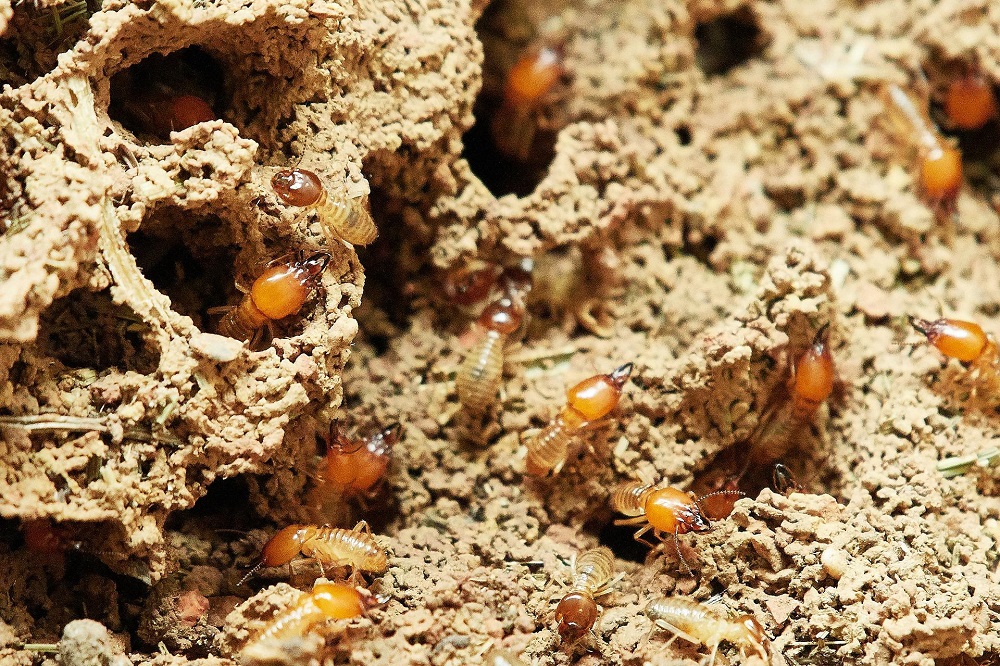Most residences in Florida, including apartments and villas, employ wood in their windows and doors, as well as in their interior woodwork. We often settle on the hardwood to be used because the grade of wood fluctuates proportionally with the price. As a result, wood commodities that have not been managed for insects and vermin are preferred by these pests.
Termites attack once they’ve found wood. Termites are extremely destructive and may inflict a lot of damage in a short amount of time. As a result, it is best to call termite exterminators in Miami, Florida as soon as feasible. However, you won’t know to do it unless you are aware of a termite infestation. So let’s take a look at some indicators of termite infestation.
1. Mud Tubes: Mud tubes are the most visible indication of a termite outbreak, spreading out of the ground and along walls. They also serve as a signal when their nest is nearby enough. Termites in the vicinity will not be eradicated by breaking them and wiping out the dirt. Large woody plants or bushes in your landscape or near your house may also develop mud tubes. The termites may then begin destroying your home’s wooden furnishings, cupboards, and sometimes even picture frames. You are not fully safe even if you live in a high-rise residential complex.
2. Wood Damage Indications: Termites and wood-boring beetles are not quite the same. Some beetle species lay their eggs on or slightly beneath a wooden structure. The larva then bores through the wood for several weeks, producing holes the size of paper punched openings in the wood. Many folks who have resided in one place their entire lives have never seen a wood-boring larva, though they may have heard scratching noises emanating from walls and doors and furnishings during quiet times. While the larvae of these beetles can cause harm to your furnishings or cabinetry, they do not consume the wood entirely. Rather, they leave a passage that even a carpenter can readily seal. Termites generate wood dust that is coarser and heavier than that generated by beetles. So, what does this all imply? If you come across a tiny opening in the wood, touch the surrounding area to determine if it feels empty. Only substantial termite infestation will lead the outermost part to crumble or generate a dull thud. In any event, you should see a professional to determine whether the hole was produced by termites or beetles. If termites are the problem, a skilled termite treatment service is required.
3. Stuck Doors and Window Frames: The majority of our homes’ doors, windows, and panels are still made of timber. Termites can approach them from underneath the flooring or from beyond your home, so these are usually the first locations they attack. Stuck doors are mainly caused by the natural expansion of the wood. Termites, on the other hand, are sometimes to blame. Check the window or door frames and the window or door for signs of emptiness, small holes, sawdust, or mud tubes. You should understand what to do if you detect something odd by now.
4. Termite Mounds: There are many different types of termites. There are numerous kinds and sub-species with distinct appearances and preferences. Subterranean termites residue underneath in the soil, although some termites dwell and develop communities in the wood. These kinds are known for creating the well-known termite heaps that you’ve already seen on TV or in reality. A termite mound on your land or in a park near your home, no matter how modest, is a warning sign that indicates the presence of a possibly enormous system of tube burrows. When you see an outbreak of termite heaps it is best to browse for “termite exterminators near me” and call them as soon as possible.
Termites are more difficult to eradicate than most other residential pests. Termites do not respond to insecticides. Traditional and outdated termite control methods employ hazardous chemicals that are harmful to our well-being and can taint and even destroy our walls as well as furnishings. Also, merely hiring a reliable carpenter or mechanic will not produce satisfactory outcomes.

